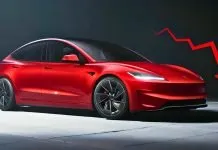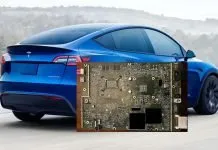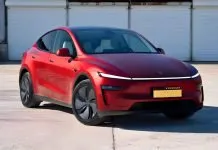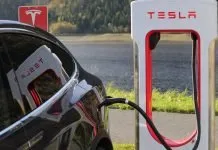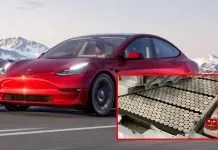Mercedes-Benz has achieved an important EV technology advancement by road-testing a lithium-metal solid-state battery within the EQS prototype vehicle. The joint development between Mercedes and Factorial Energy aims to change the EV market by creating advanced battery technology that delivers improved energy capacity alongside better security and efficiency.
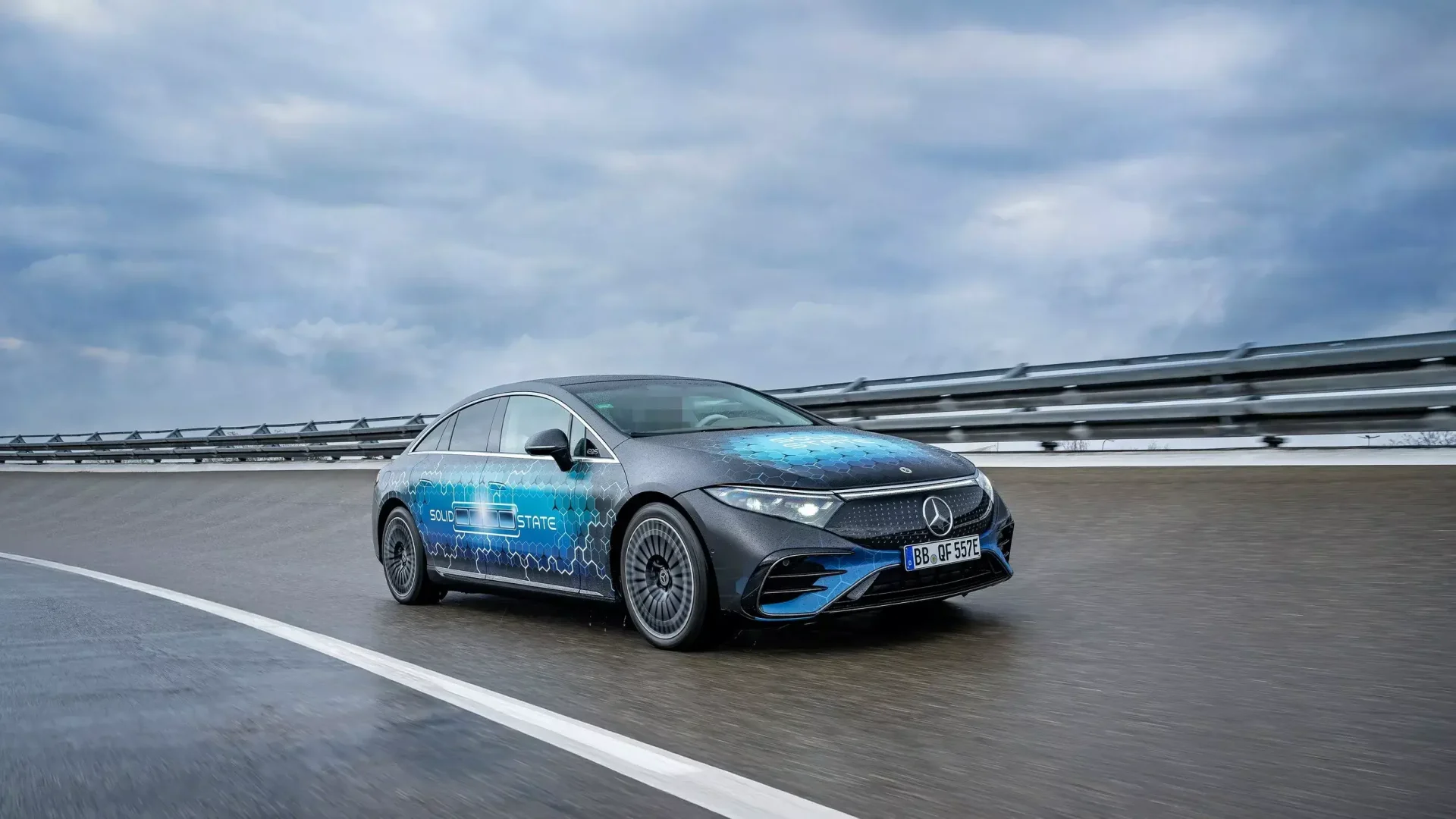
The Promise of Solid-State Batteries
Researchers recognize solid-state batteries as the supreme target for EV technology advances since they deliver improved performance beyond current lithium-ion battery standards. Replacing the liquid electrolyte with a solid one leads to greater energy density improvements besides safer operations coupled with extended cycling life expectancy.
Until now, the development of solid-state batteries has largely been restricted to laboratory settings. Mercedes has made an important move towards practical approaches in its newest technological developments.
A Leap Forward in EV Technology
The tested EQS prototype uses solid-state battery cells which Factorial Energy developed. Lithium-metal solid-state battery technology achieved its first commercial application when Mercedes integrated it into its latest vehicle lineup. A single battery charge allows the EQS to travel up to 621 miles (1,000 km) giving a 25% better range than what lithium-ion batteries of similar size and weight can produce.
Under Worldwide Harmonized Light Vehicles Test Procedure (WLTP) regulations, the standard Mercedes EQS 450+ model with its 118 kWh lithium-ion battery gives a driving range of 800 km (497 miles).
Sihu Huang, Factorial Energy’s CEO, announced this breakthrough as he embraced the transformation to become the first company to create lithium metal solid-state batteries for a production vehicle platform. The milestone validates that solid-state battery innovation has advanced from lab testing toward automotive production which created a new performance standard for the entire automotive sector.
Innovative Battery Design
Solid-state battery development faces the main obstacle of controlling material the expansion and contraction of materials which change during battery charging and discharging operations. The Mercedes battery design uses pneumatic actuators to accommodate changing cell volume. The innovative technology enables battery performance stabilization which leads to prolonged battery service.
The solid electrolyte enables lithium metal anode rendering, which significantly boosts energy density. Using their new technology Mercedes predicts that they will reach a gravimetric energy density of 450 Wh/kg surpassing the performance of current lithium-ion batteries. Stronger battery energy density enables designers to make smaller and lighter electric vehicle packs which would enhance the total efficiency of EVs.
Safety and Sustainability Benefits
Solid-state batteries provide exceptional safety benefits in addition to their other advantages. Without flammable liquid electrolytes in batteries, the danger of fires becomes minimal which was a concern with lithium-ion technology. Better thermal properties found in solid-state batteries work to increase vehicle safety while boosting system reliability.
From an environmental standpoint, Mercedes-Benz continues to work actively to lower the ecological footprint of its electric vehicles. The Chief Technology Officer, Markus Schäfer declared that the breakthrough demonstrates the company’s dedication to sustainable innovation by developing automotive-scale solid-state batteries.
The EQS solid-state prototype exists in a phase of active assessment during real-world conditions. These evaluations will assess its performance, durability, and suitability for mass production. The absence of official launch dates from Mercedes does not prevent the possibility of solid-state EVs entering the market ahead of expectations.
Solid-state batteries will soon power vehicles produced by Dodge as well as other manufacturers based on recent announcements. The Dodge Charger Daytona will receive solid-state battery technology during 2026 which demonstrates how the automotive industry moves toward this superior energy storage method.
Conclusion
The world saw a breakthrough in EV innovation after Mercedes-Benz unveiled its solid-state battery-driven EQS prototype. The technology has the power to transform electric mobility when combined with longer operational distances together with enhanced protective features and better operational performance.
Testing and development activities continue to make solid-state batteries mainstream and available for the next generation of high-performance electric vehicles. Electric driving will embark on an even brighter future because Mercedes keeps advancing their EV technology development.



